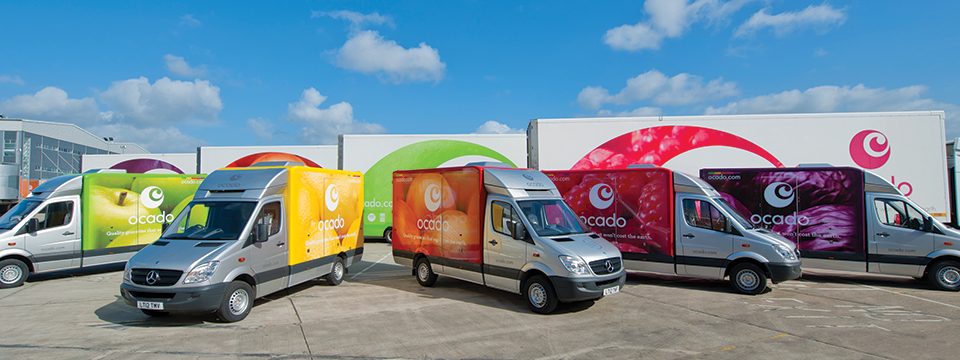After admitting to talks yesterday, Marks & Spencer (MKS) confirms plans to form a £1.8bn grocery joint venture with technology delivery firm Ocado (OCDO). The fact the latter’s shares ripen another 4% to £10.30 on the news reflects a perception the deal makes more sense for Ocado than for Marks & Spencer, whose entry into the food delivery business for the first time comes at a hefty price.
In fact, the high street bellwether plans to raise £600m through a dilutive rights issue to part-fund the deal and to lower its dividend by 40%, hence today’s 11.2% share price slide to 269.2p.
NUTS & BOLTS OF THE DEAL
Following weeks of speculation, both parties today confirm they are creating a new 50/50 joint venture to supply groceries online to British shoppers. Marks & Spencer is acquiring a 50% share of Ocado’s UK retail business for up to £750m, a sum which incorporates a deferred element of £187.5m, payable after four years plus interest conditional on reaching agreed targets.
Significantly, this new business will trade as ‘Ocado.com’ and will gain access to Marks & Spencer’s product range, brand and customer database following the termination of Ocado’s current sourcing agreement with Waitrose in September 2020.
Pure play digital grocer Ocado will transfer its retail customers, sales and supplier relationships, as well as some vehicle assets and central functions to the joint venture and provide the end-to-end e-commerce platform and third party logistics services.
On the face of it, the joint venture could deliver major benefits for both players. Marks & Spencer has been lacking the strong internet presence needed to lock horns with rival supermarkets like Sainsbury’s (SBRY) and Tesco (TSCO). Now, for the first time, it can deliver food direct to customers.
Ocado needed a partner just as much as Marks & Spencer and its customers want the perceived reliability of a known quality brand such as Marks & Spencer, whose CEO Steve Rowe has ‘always believed that M&S Food could and should be online. Combining the strength of our food offer with leading online and delivery capability is a compelling proposition to drive long-term growth.’
Rowe continues: ‘Our investment in a fully aligned joint-venture with Ocado accelerates our Food strategy as it enables us to take our food online in an immediately profitable, scalable and sustainable way.
‘Combining the magic of M&S Food with Ocado’s leadership in online technology allows us to transform UK online grocery shopping by offering customers the broadest, most innovative and relevant range in UK food retail with award-winning service. Our partnership with Ocado will create shared value for our customers, colleagues, supplier partners and shareholders, operating with a common sense of purpose and values.’
Rowe adds: ‘This is a transformational step forward in shaping the future of M&S and in becoming a truly digital first retailer with at least a third of the business online.’
SQUARING A CIRCLE OR SQUANDERING CASH?
Shore Capital says the deal is ‘squaring a circle’ for M&S Food:
‘For M&S, after considerable and sustained feasibility work into the online grocery channel, which the group states has been “uneconomic due to the high cost of manually picking from store”, amongst other things, the joint venture provides a mechanism to finally access the remote channel through a profitable mechanism that has scalable potential.
'The venture combines M&S’s highly regarded and innovative food brand with Ocado’s equally innovative smart platform technology and whilst the financial outcome of the transaction is yet to be determined, M&S states that it sees “long term value creation opportunities for both M&S and for the joint venture”.
But not all shareholders in Marks & Spencer are impressed. Cavendish Asset Management’s seasoned stock-picker Paul Mumford argues that the Ocado joint venture is an extravagant use of shareholders’ cash.
‘Compared to Sainsbury’s and Tesco, Marks & Spencer clearly can’t compete when it comes to customers’ weekly shops. And whichever way you look at it, raising £600m to invest in a joint venture which may or may not work seems an extravagant use of shareholders’ money.
‘The motivations behind this deal for Marks & Spencer are clear, as the company has long struggled with an online offering that is not up to scratch. However, it’s uncertain how much this deal will actually benefit the retailer in the long term. This is partly due to the limited range and variety of products that Marks & Spencer offers, making it more of a top up shop than a weekly shopping destination. Given this won’t take place until later this year, all shareholders can do is wait and see how it plays out.'




